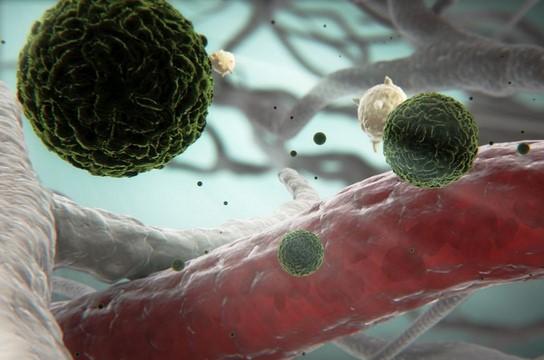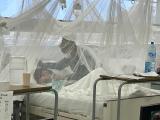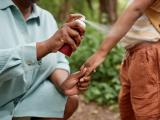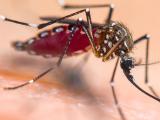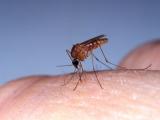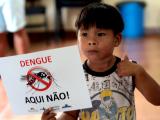A study presented at a scientific meeting this week and published in the journal Science provides robust evidence of antibody dependent enhancement (ADE) in dengue, a phenomenon observed for the last half century unique to the flavivirus.
Scott Halstead, MD, a pioneering figure in dengue research, first described ADE in the 1970s, noting that once a person has had one of four strains of dengue, subsequent reinfections can be more severe. Instead of offering protection, antibodies to the virus enhance the disease.
The phenomenon has been described by Halstead in primates, and in mothers who pass some dengue antibodies on to their babies. Most recently, it was a controversial result that appeared in studies surrounding the phase 3 trial for Sanofi Pasteur's Dengvaxia. In that setting, children who were dengue naive at the time of vaccination were more likely to develop severe dengue virus when exposed to the disease in the following 12 months. The vaccine appeared to act as a primer for ADE.
Now Leah Katzelnick, a postdoctoral fellow at University of California-Berkeley demonstrated at the annual meeting of the American Society of Tropical Medicine & Hygiene (ASTMH) that it's a particular level of antibodies that sets up a patient for ADE.
From 2004 to 2016, 8,002 children 2 to 14 years old were enrolled in a study in Nicaragua, a dengue-endemic country. At least 6,684 of the children had one dengue antibody titer measurement and were included in the study. In children with an intermediate level of dengue antibody (1:21 to 1:80), the hazard of developing severe dengue was 7.64-fold higher than in peers with no antibodies or previous exposure to the virus.
"Our study shows that individuals with intermediate antibody titers are at higher hazard than those who had not been infected, or have higher levels of antibodies," said Katzelnick in an interview.
Implications for vaccine, Zika
The study provides impetus for vaccine manufacturers to consider a recipient's dengue antibody levels before immunization, Katzelnick said.
"A vaccine that induces antibody titers at, or near, the peak enhancement titer, may place vaccines at greater risk of severe dengue than if they had never been vaccinated," she and her co-authors write in Science. "Further, immune correlates of severe dengue need to be estimated separately from correlates of protection against any dengue disease in vaccine trials and natural infection studies, an observation that may also be relevant to studies of Zika disease and vaccines."
Halstead spoke to CIDRAP News about the study and ADE in general.
"We're all playing Russian roulette when it comes to previous dengue exposure and ADE," he said. "But this study offers us a path forward and a way for operationalizing information about antibody levels."
Katzelnick said that her work is ongoing. "Are vaccines not appropriate for individuals in a key range of antibodies? Will ADE happened in other flaviviruses, such as Zika? Does dengue enhance Zika? These are all still questions we're looking at," she said.
For Halstead, the work on ADE continues to be "simple, but not simple."
Dengue, he said, is the only known disease in which maternal antibodies can harm a child, and where previous infection does not strengthen the body's ability to attack an invader.
See also:
Nov 6 ASTMH meeting abstract
Nov 2 Science study
Jul 28, 2016, CIDRAP News story "Contrary dengue vaccine response hints at possible problems with Zika"
